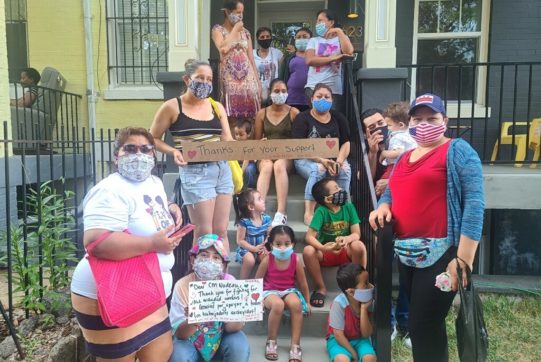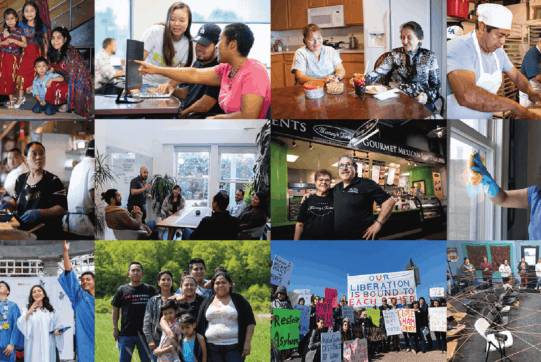About Sueños Sin Fronteras de Tejas
Sueños Sin Fronteras de Tejas (SSFTX) is a Latinx, women of color-led, non-profit organization whose aim is to achieve health, healing, and liberation for immigrant, undocumented, refugee, and asylum-seeking women and families in South Texas through community-based programming and advocacy. Based out of San Antonio, SSFTX works from a health equity and reproductive justice lens to identify and challenge structures that dehumanize and oppress women and families of color.
What type of work will the grant enable?
SSFTX’s work addresses domestic violence, reproductive health issues, and immigration challenges, centering self-determination and ally support in solidarity rather than charity. Examples of these strategies include frequent needs assessments, community mutual aid, utilization of community health advocates, commissary cash grants for detained families to make phone calls and purchase hygiene items, health knowledge shares, referrals for reproductive/sexual and mental health services, care coordination, virtual entrepreneurial and leadership classes, access to technology, and continuity of care and resources through referrals to bilingual service providers, organizations, and agencies in San Antonio and other cities across the U.S.
Why is this work important?
SSFTX was founded on the belief that all people have the right to achieve sexual and reproductive health, safety, and dignity for themselves and their communities. Since its founding, SSFTX has uplifted the health and healing of more than 30,000 migrant and immigrant individuals in South Texas. The overall goal of SSFTX’s intersectional programming is to center self-determination so that immigrant and undocumented women can decide what is best for their bodies, families, and communities, because when families are supported in their needs, choices, and liberation, they are then empowered to achieve positive health outcomes and economic mobility.




